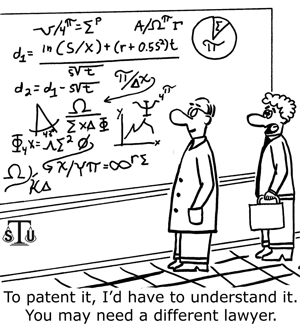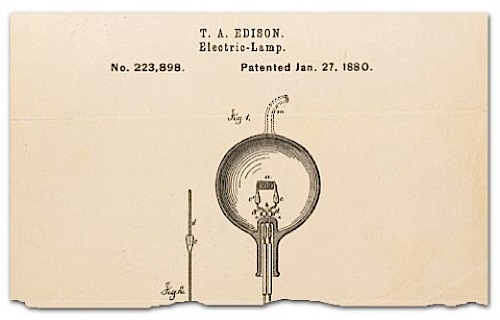What do start ups need to know about patent law?
By Rock Health intern Jessica Hershfield
Did you know that the United States has passed the 8 million patent mark? For entrepreneurs, patenting can seem overwhelming. In order to help our start-ups navigate through this vast world, we brought in Jeffrey Schox, of Schox Patent Group, to discuss what every startup should know about patent law.
Jeff began by addressing some of the most common misconceptions as to why start-ups should file, namely: to enforce against a competitor, prevent the patenting by somebody else, and to generate licensing revenues. Jeff believes that these are terrible reasons for entrepreneurs to file for a patent, as these reasons are generally too expensive, and unworthy of the start-ups time.
Instead, Jeff laid out three smart reasons that start-ups should file for a patent:
- Stimulate investment or acquisition. Acquiring a patent proves exclusivity of your technology, while validating the novelty of your invention. These dramatically increase your value to a possible investor, making the hunt for funding that much easier.
- Deter patent infringement lawsuit. While this happens silently, a patent discourages any outside company from imposing an expensive lawsuit, since your technology is protected under the patent.
- Increase leverage over a partner. Owning a patent ensures you a “spot at the table” in future negotiations with partners brought on in later stages. In effect, a powerful partner cannot leave you in the dust, as you own the rights to the technology.
So now that we know the smart reasons to file a patent, lets get into the basics of how patent law actually works. One of the biggest misunderstandings of patent law is the relationship between the patentability of an invention and the infringement of another patent. In order to get a basic grasp for how these work, we will employ the case of the frosted lightbulb. Thomas Edison created the lightbulb and is credited with the pioneering invention. However, a man named Pipkin decided to frost the lightbulb, allowing for the ambient and cool light we have become accustomed to today. Pipkin’s creation is known as an improvement invention. So the question is, who can make the frosted lightbulb?
And the answer is, no one. Neither Edison nor Pipkin would be able to produce the frosted lightbulb without infringing on the patents of the other. The correct answer would be someone who licenses both the lightbulb and the frosting; this is known as cross licensing.
So, you think you have an idea worth patenting? You are probably wondering when you have to file for a patent?
The United States is transitioning from “first-to-invent” to a “first-to-file” practice. Under the current, “first-to-invent,” practice there is a loss of patent rights if the invention was: one, described in a printed publication; or two, in public use or on sale in the US, more than one year before the filing of a patent application. Therefore, it may be smart to publish the idea of your invention, say in a white paper, before spending the vast amount of money filing for a patent. Be sure you are committed to your complete invention before committing to the patent process.
However, under the coming “first-to-file” practice, the first person to file for patent protection would have the rights to that invention, regardless of who actually invented it first. This will lead to more inventors applying for provisional patents earlier and more often. These provisional patents provide 12 months of protection before requiring filling. These provisional patents are much less expensive, and require little effort to file; therefore, Jeff recommends filling for these as soon as you have your invention nailed down. To read more about provisional patents click here.
Now that you are equipped with the basics of patent law, you may feel the pressure to look through the 8 million patents in the US, finding any overlaps to your invention. Don’t! According to Jeff, in the beginning stages of your start-up, all you need to do is discover your top 5 competitors in the field, and understand the patents that they hold. At this point in your company, your only concern should be convincing your investors that you can handle your biggest competitors, not every single patent owner in the United States.
So are you ready to file a patent? It’s time to find the right patent attorney. Find a lawyer who has experience working with start-ups, understands your business strategy, and has the technical background to understand what it is exactly you want to patent. When you have found the right fit for your start-up, you are ready to file. Good luck!

